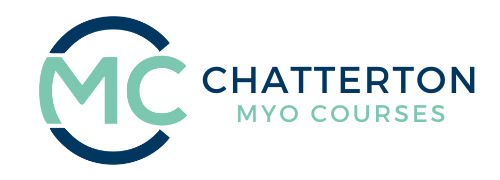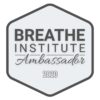Speech Language Pathology 101: Understanding Oral Motor Development
Are you a doctor considering getting certified as a Speech-Language Pathologist? You’re not alone – this field is growing rapidly, and being a qualified practitioner could help you make a difference in your patients’ lives. However, with so much information, knowing exactly what is required to pursue this path professionally can be hard.
Why don’t you start at the beginning? This blog post will examine how oral motor development works and explain why it’s essential for any aspiring SLP. That way, you can take a soft dive into learning how to assist individuals with various oral motor difficulties. Keep reading to begin this Speech Language Pathology 101!
What is Oral Motor Development?
Oral motor development refers to the growth, maturation, and coordination of the muscles involved in the oral cavity, including the lips, tongue, jaw, and facial muscles. This growth is crucial to achieving body functions such as eating, drinking, speaking, and more.
Oral myology, which studies oral motor development, examines how the muscles work together to produce these functions. It also helps diagnose any issues or difficulties with these muscles that may be causing speech impediments or other dysfunctions.
Common Issues of Oral Motor Difficulties
Many issues can arise with oral motor development, and they may typically present as difficulties in eating or drinking. For instance, a person unable to coordinate their tongue’s movements could struggle to chew food properly. This is just one example of what an SLP might face when working with a patient with oral motor difficulties.
Other common issues include breath support, limited facial expressions, and even vocal pitch/intensity problems. An SLP will need to be able to accurately diagnose the problem and provide strategies for working with these difficulties. Otherwise, the patient might struggle to sleep, feed themselves, and communicate with others.
SLP And Oral Myology
SLPs deeply understand oral motor development and use this knowledge to develop strategies and support individuals with speech-related issues, such as Orofacial Myology Disorder. Treating these conditions requires a combination of observation, assessment, and evidence-based techniques.
Therefore, SLPS need to understand the process behind oral motor development. This will help them diagnose issues more accurately and provide appropriate treatment plans that address each patient’s needs. Tailored treatments will also promote better outcomes, and the patient can get back to leading a healthy and productive life.
Popular Treatment Plans For Oral Motor Difficulties
SLPs use various approaches to treat oral motor difficulties. These may include:
– Exercises that strengthen and help coordinate the muscles involved with speech.
– Modifying habits or behaviors, such as tongue thrusting, incorrect chewing, or swallowing.
– Education to empower patients and family members with knowledge about oral motor development and patient issues.
– Verbal prompts or visual cues remind patients of the proper techniques for speaking or eating correctly.
Get Certified as a Speech Language Pathologist With Chatterton Myo Courses
As a medical professional, you constantly search for effective ways to provide your patients a healthier and more comfortable experience. So it’s frustrating when you don’t always have the necessary qualifications to treat a condition. Chatterton Myo Courses provide certified training and equip you with the skills to help patients with oral motor difficulties.
With this certification, SLPs can better serve those in their community who struggle to eat, drink, speak, and communicate correctly due to oral motor issues. So start your journey today by following these simple steps:
- Contact us: Complete our online form or email us to enroll in our certification program.
- Learn: Assist our intensive 3-day course, covering everything from understanding oral motor development to strategies for treating patients with oral motor difficulties.
- Receive Certification: After completing the course, you’ll receive a certificate proving your Speech-Language Pathology and Oral Myology proficiency.
If you don’t take the chance to get certified, you’re missing out on an opportunity to grow and expand your capabilities as a medical professional. So why not try it? Many medical professionals have gained their certifications at Chatterton Myo Courses, so rest assured we have all the tools you need to help your patients have better lives and more comfortable days.
We hope this article gave you a good overview of oral motor development and the role of an SLP in treating it. Now that you understand the basics, why not get certified to assist those with orofacial issues? Get started today!

